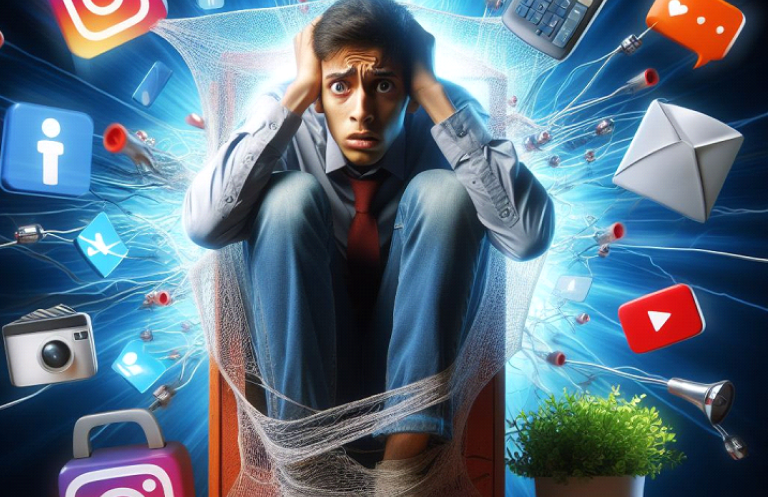Growing up in the fastest growing city of Hyderabad in India, I was always surrounded by the glitz and glamour of urban life. Like many of my peers, I found solace and connection through social media platforms, believing that the virtual world was a reflection of reality. Little did I know, the digital realm was weaving a web of anxiety, comparison, and self-doubt that would shape my adolescent years.
The Digital Mirage: The Rise of Anxiety
As I scrolled through my Instagram feed, I was bombarded with snapshots of seemingly perfect lives – lavish vacations, flawless selfies, academic achievements, and social gatherings. Each post was a reminder of what I believed I lacked. I began comparing my life, achievements, and appearance to those curated images, feeling inadequate and unworthy.
Moreover, the pressure to maintain an impeccable online persona consumed me. I found myself constantly seeking validation through likes, comments, and followers, equating my self-worth with social media metrics. The fear of missing out (FOMO) intensified, compelling me to constantly check my notifications, sacrificing sleep, study time, and real-life interactions.
The virtual world was not devoid of challenges either. I encountered cyberbullying, faced criticism, and witnessed online conflicts that further exacerbated my anxiety. The lines between the online and offline worlds blurred, and I felt trapped in a digital labyrinth of comparison, validation, and anxiety.
The Turning Point: Embracing Mindful Engagement
Recognizing the detrimental impact of social media on my mental health, I decided to embark on a journey of self-awareness, reflection, and transformation. Here’s how I navigated the digital maze and reclaimed my well-being:
- Digital Detox: I started by setting specific times to disconnect from social media, focusing on engaging in offline activities that brought joy, fulfillment, and connection. Whether it was pursuing hobbies, spending time with loved ones, or exploring nature, I prioritized activities that nourished my soul and nurtured my well-being.
- Mindful Consumption: I became intentional about the content I consumed, unfollowing accounts that triggered feelings of inadequacy, comparison, or negativity. Instead, I followed accounts that promoted positivity, mental health awareness, and personal growth, cultivating a nourishing and supportive online environment.
- Seeking Support: I opened up about my feelings of anxiety and struggles with my friends, and parents. Their empathy, understanding, and guidance provided me with the support, validation, and perspective I needed to navigate my challenges and cultivate resilience.
- Positive Engagement: I engaged in meaningful conversations, communities, and activities that aligned with my values, interests, and aspirations. Whether it was volunteering, pursuing creative endeavors, or connecting with like-minded individuals, I focused on building authentic relationships and contributing positively to the world around me.
Conclusion:
My journey with social media anxiety taught me invaluable lessons about self-awareness, resilience, and well-being. By embracing mindful engagement, seeking support, and prioritizing authentic connections, I navigated the digital labyrinth and reclaimed my joy, confidence, and sense of self-worth. Today, I am committed to fostering awareness, understanding, and conversations about the impact of social media on mental health, empowering individuals to cultivate balance, authenticity, and well-being in the digital age.
